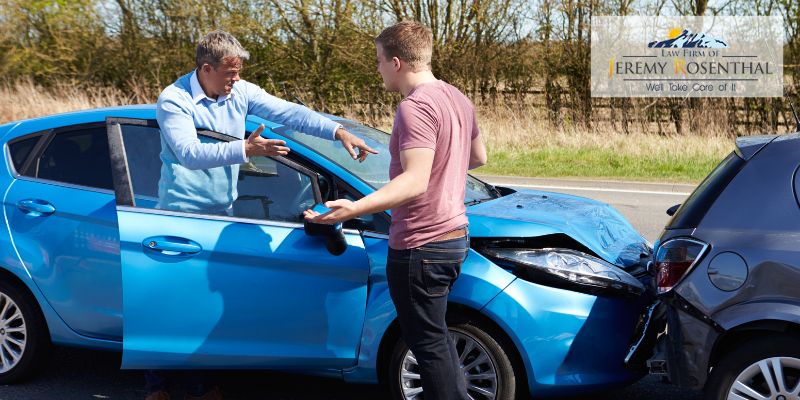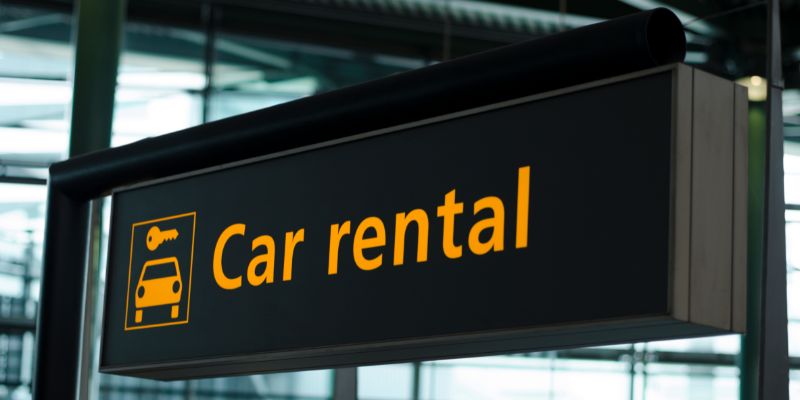Renting a car is often associated with adventure and travel, and the last thing on your mind may be liability and insurance. However, rental cars pose particular dangers because drivers are not familiar with the way the car handles, its particular quirks, blind spots, and speed of acceleration. Because of the strangeness of driving a new car, often in unfamiliar areas, driving a rental car may cause a misjudgment of timing, speed, or distance and lead to an accident. For this reason, it is important to understand and review liability surrounding rental car accidents before renting a car. If you get into an accident while driving a rental car, or if you are struck by a rental car, a Denver car accident attorney can help you protect yourself financially and recover any compensation to which you are entitled for your losses.

Before You Drive Off
Always make sure to check your rental car for any damage before you exit the lot, and have the attendant note any scratches, dents, or interior issues before you leave. You may also want to take pictures for your own records. This is important because, if these things are not documented, the rental company may blame you for the damage when you return the car and charge the cost of repairing these imperfections to your credit card. If you have no way to prove that you were not responsible for the damage, it is likely that your insurance will have to pay, possibly increasing your monthly payments.
Rental Car Insurance
When you rent a car, your personal car insurance will almost always cover your liability. Depending on your personal coverage, however, it is always a good idea to check with your insurance company to make sure that your coverage will apply. For example, some insurance companies may not cover you if you are renting the car for business purposes through your company or long term rentals.
In addition, if you only have the minimum insurance coverage for Colorado, your insurance will only cover personal liability, meaning that it will pay for injuries to another driver, passenger, pedestrian, or cyclist and their property damage. It will not cover your own medical bills or damage to the rental car if you are at fault for an accident. Drivers must carry comprehensive collision coverage to have these costs compensated. Sometimes your credit card will provide rental car insurance if you use the card to reserve and pay for the rental. This insurance may be secondary, however, meaning that it will pay for damages above and beyond those which are covered by your primary, personal insurance.
Car rental companies will ask renters if they wish to purchase additional insurance on the car that they are taking out. Remember that this coverage is completely optional, and you are not obligated to purchase it if you have your own personal liability insurance. If you wish to further protect yourself, or the car, it may be something to consider. Additionally, if you do not own a car and have no personal insurance, you may be required to purchase the rental car insurance.
Collision Damage Waiver
Some rental car companies may offer you something called a “collision damage waiver,” at an additional charge. If you purchase this option, liability for any damage done to the rental car will be shifted from you to the rental car company, even if you cause the accident. Unfortunately, it will not cover the costs of your medical bills if you are at fault for an accident. Also, you may already have this coverage through your personal provider, in which case purchasing it from the rental company is redundant.
Loss of Use
One particular concern with accidents involving rental cars is a charge called “loss of use.” In theory, this charge is designed to protect rental car companies from economic losses when their cars are damaged and not available for rent. For example, if you are at fault for an accident while driving a rental car, and the car is in the shop for 2 weeks getting repaired, you may be charged in full for the cost of renting that car for 2 weeks. If the daily fee is $80, you would see a charge of $1,120 for loss of use. Many times, personal insurance companies and even rental company insurance available for purchase will refuse to cover this charge. Often, these “loss of use” charges will be dropped if they are contested, but sometimes they are upheld.
Rental Company Liability
Most of the time, the rental company will not be liable for the damages caused in an accident by one of their renters. However, there are exceptions to this general rule. For example, if it can be proved that the rental company maintained their vehicles improperly or was aware of a safety defect in the car that was not communicated to the customer, the rental company may be sued for damages by both parties involved in an accident caused by the car’s defect. If you are concerned that a car rental company may have concealed information from you or failed to provide you with a safe rental, an experienced auto accident attorney can help you explore your options for compensation.

Legal Representation after Rental Car Accidents in Colorado
If you are in an accident involving a rental car, the first step is to make sure everyone gets access to emergency medical services and then notify police. Afterward, you need to take down all information from all other parties, including the rental information if you are not the rental car driver. You must then notify your own insurance, the rental car company, and your credit card company if you were using rental insurance provided by them. If you are considering filing a claim or lawsuit against a driver or rental car company, or if you are trying to figure out who is liable for your injuries in a particular accident, The Law Firm of Jeremy Rosenthal can help. Call us today at (303) 825-2223 or contact us online for a free case evaluation.
